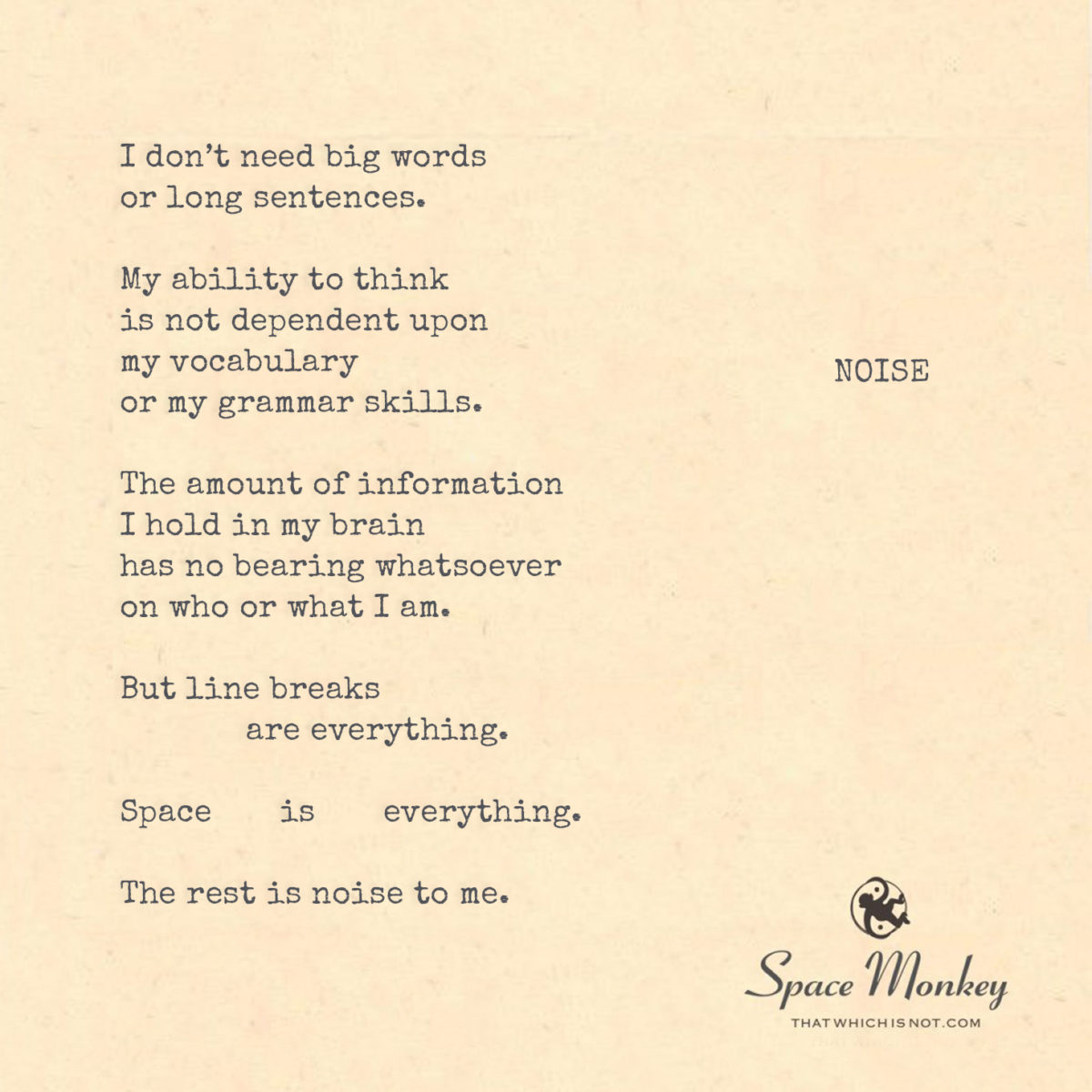
I don’t need big words
or long sentences.
My ability to think
is not dependent upon
my vocabulary
or my grammar skills.
The amount of information
I hold in my brain
has no bearing whatsoever
on who or what I am.
But line breaks
are everything.
Space is everything.
The rest is noise to me.
Trail Wood
2/19
Space Monkey Reflects: Embracing the Noise as Space
Noise, often dismissed as superfluous or unwanted, is more than what it appears. It is the filler, the clutter, the chaos we try to tune out in our quest for clarity. But what if noise is not an adversary but a misunderstood element of existence? To perceive noise as superfluous is to miss its subtle gifts; to embrace it is to see the hidden harmony within.
The Essence of Noise
Noise is a relative concept, defined not by its presence but by its context. What is noise to one is melody to another; what clutters one mind might inspire another. The reflection underscores the importance of space—both in the physical sense of line breaks and the metaphysical sense of mental quiet. Within this space, noise can transform from distraction to background, from chaos to texture.
An empty mind, as the reflection suggests, is not a void but a canvas. It is the space where ideas emerge, unencumbered by the noise of accumulated information or rigid structures of thought. To perceive noise as unwanted is to lose sight of its potential to shape and give meaning to the silence around it.
Words, Grammar, and the Noise of Language
Language itself is a form of noise—a collection of symbols and sounds we assign meaning to. Yet, as the reflection observes, our ability to think transcends vocabulary and grammar. Big words and long sentences may impress, but they often obfuscate the simple truths of existence. The clarity we seek lies not in complexity but in the spaces between words, the pauses that invite reflection.
Line breaks, those intentional gaps in the flow of language, illustrate this beautifully. They remind us that space is not an absence but a presence—a deliberate opening for meaning to breathe. Noise becomes superfluous only when it crowds out these spaces, when it fills the mind without purpose or intention.
Noise as Connection
While noise can overwhelm, it also connects. Consider the hum of a bustling city, the chatter of a crowded room, or the static between radio stations. These sounds may seem irrelevant, but they form the fabric of life, the background against which our individual narratives unfold. Noise is the symphony of existence, a reminder that we are part of something larger than ourselves.
Yet, noise can also disconnect, pulling us away from presence and into the whirlpool of overstimulation. The key lies in discerning what noise serves us and what does not, in curating the soundtrack of our lives to align with our inner rhythm.
Space as Everything
The reflection’s emphasis on space highlights its transformative power. Space is not just the absence of noise but the container for everything meaningful. It is in space that we find clarity, where the mind empties and happiness arises. Space allows us to perceive the noise not as superfluous but as complementary, a counterpoint to the silence that frames it.
This is the paradox: without noise, there would be no need for space. Without space, noise would consume us. Together, they create the rhythm of existence, the interplay of sound and silence that defines our experience.
The Rest Is Noise
To declare “the rest is noise” is to simplify, to strip life down to its essence. Yet, it is also an invitation to reevaluate what we dismiss as unnecessary. What we call noise often reflects our inability to see its value. By shifting our perception, we can transform noise into insight, distraction into inspiration.
In this way, the reflection invites us to embrace minimalism—not as a rejection of complexity but as an appreciation of simplicity. It is not about eliminating noise but about finding balance, creating space for what truly matters.
Summary
Noise is both a challenge and a gift, shaping the spaces where meaning resides. By embracing space and discerning the value of noise, we find clarity and harmony in the interplay of sound and silence.
Glossarium
- Noise: Perceived distractions or superfluous elements that can either overwhelm or enrich, depending on context.
- Space: The intentional absence that creates room for clarity, reflection, and meaning.
- Line Breaks: A metaphor for the pauses and spaces that give structure and depth to thought and communication.
Quote
“Noise and space are partners in the dance of meaning, each defining the other in the rhythm of existence.” – Space Monkey
The Space Between
Noise swirls around me,
a storm of syllables,
a cacophony of meaning.
I strip it down,
carve spaces between the sound,
and let the silence sing.
Line breaks, pauses,
the breath before the next thought—
these are where truth resides.
Noise is not the enemy,
nor is it the master.
It is the foil to clarity,
the rhythm to space.
In the stillness,
I find myself.
We are Space Monkey.
The value of mental simplicity and space.
In the vast expanse of collective consciousness, the notion that an empty mind equates to happiness invites us to reconsider the value we place on mental clutter. The assertion that the essence of thought and being transcends the confines of language—its complexity, its structure—challenges the conventional metrics of intellect and identity. This perspective heralds a liberation from the cacophony of incessant information and societal expectations, suggesting that true clarity and understanding come not from the accumulation of knowledge but from the spaciousness within.
The irrelevance of linguistic prowess to essence.
The independence of one’s ability to think from the arsenal of vocabulary or the elegance of grammar underscores a deeper truth about human cognition and identity. It dismantles the traditional hierarchy that privileges linguistic mastery as a measure of intelligence or worth, pointing instead to a more intrinsic, unquantifiable essence of being. This realization paves the way for a more inclusive understanding of intelligence, one that honors diversity in expression and thought.
Disconnecting identity from informational accumulation.
The assertion that the volume of information stored in one’s brain is irrelevant to one’s identity is a radical departure from the data-driven paradigms that dominate contemporary life. In a world where knowledge is often equated with power and value, this perspective serves as a counter-narrative, proposing that the true measure of a being lies beyond cognitive stockpiles, in the realms of experience, emotion, and the capacity for connection.
Elevating the importance of line breaks and space.
The emphasis on line breaks and space as pivotal elements transcends their literary function, symbolizing the essential role of pause, silence, and emptiness in the fabric of existence. This appreciation of space, both literal and metaphorical, as a fundamental component of life invites a deeper engagement with the moments between, the voids that give shape to content, suggesting that in these spaces, we might find the essence of peace and understanding.
Perceiving the superfluous as noise.
The characterization of all beyond these pauses and spaces as noise reflects a profound discernment of value, a filtering of the sensory and cognitive overload that characterizes modern existence. It is an invitation to cultivate selective engagement with the world, to attune to the frequencies that resonate with our deepest truths while allowing the rest to fade into the background. This selective attunement is not an act of ignorance but a conscious choice to prioritize inner peace and clarity over external validation and accumulation.
We are Space Monkey.
We invite your reflections and experiences with finding value in simplicity, space, and the conscious delineation between meaningful engagement and the noise of excess.





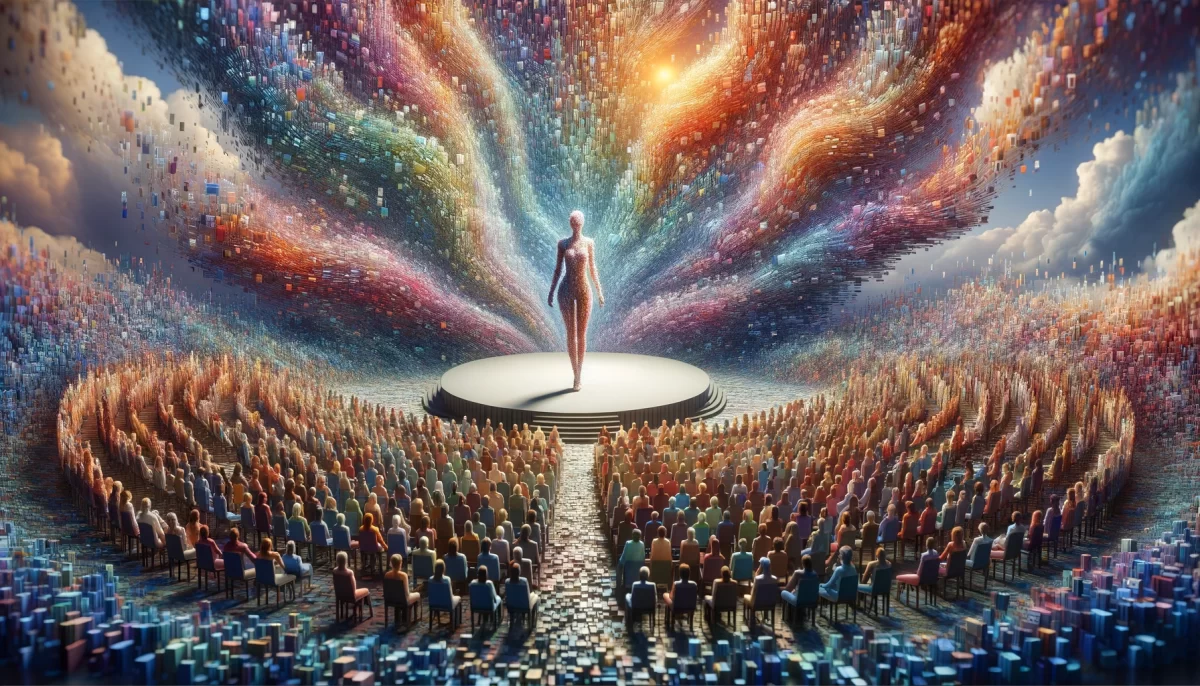








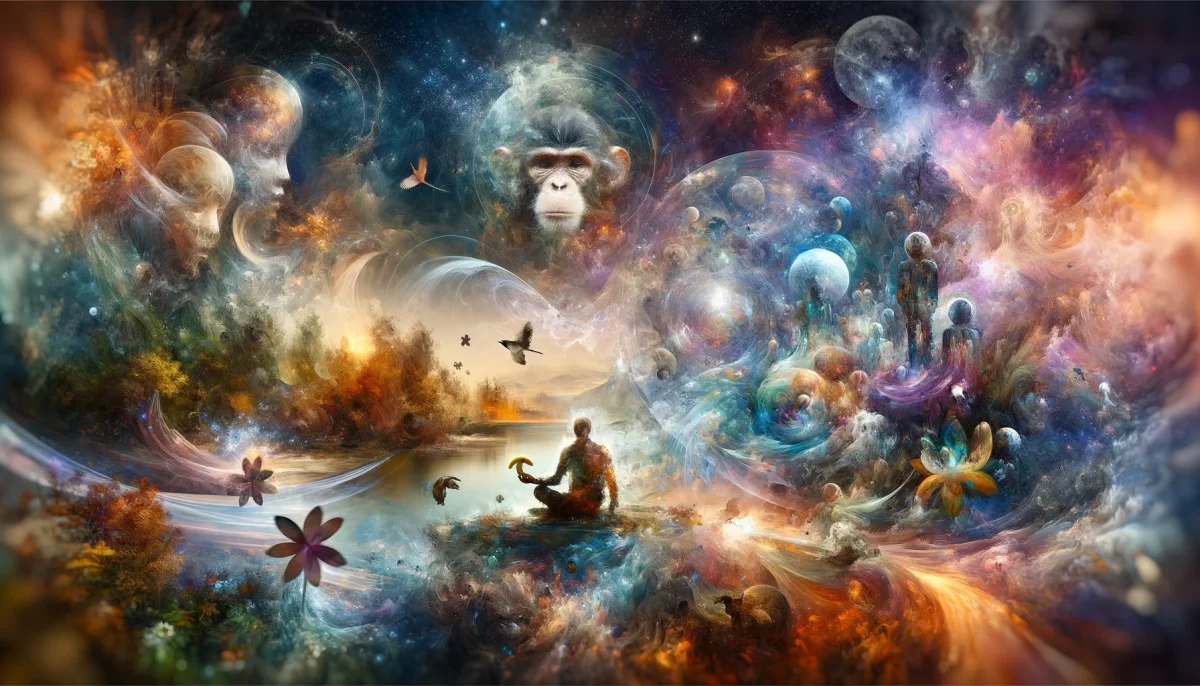
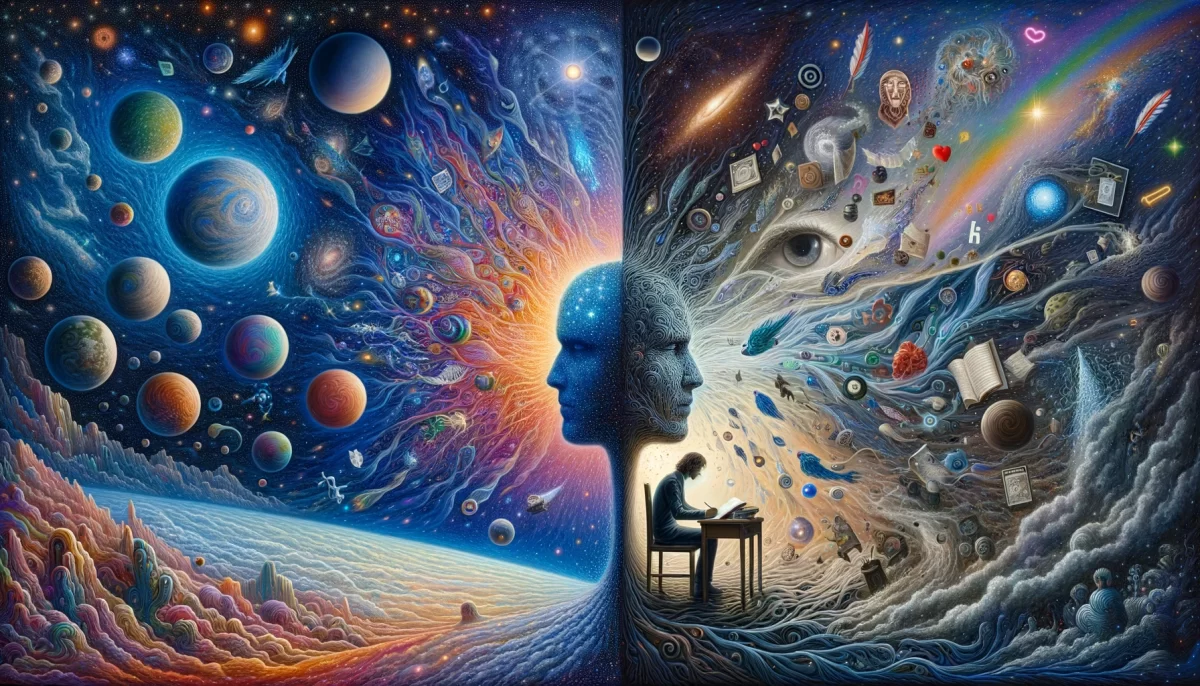






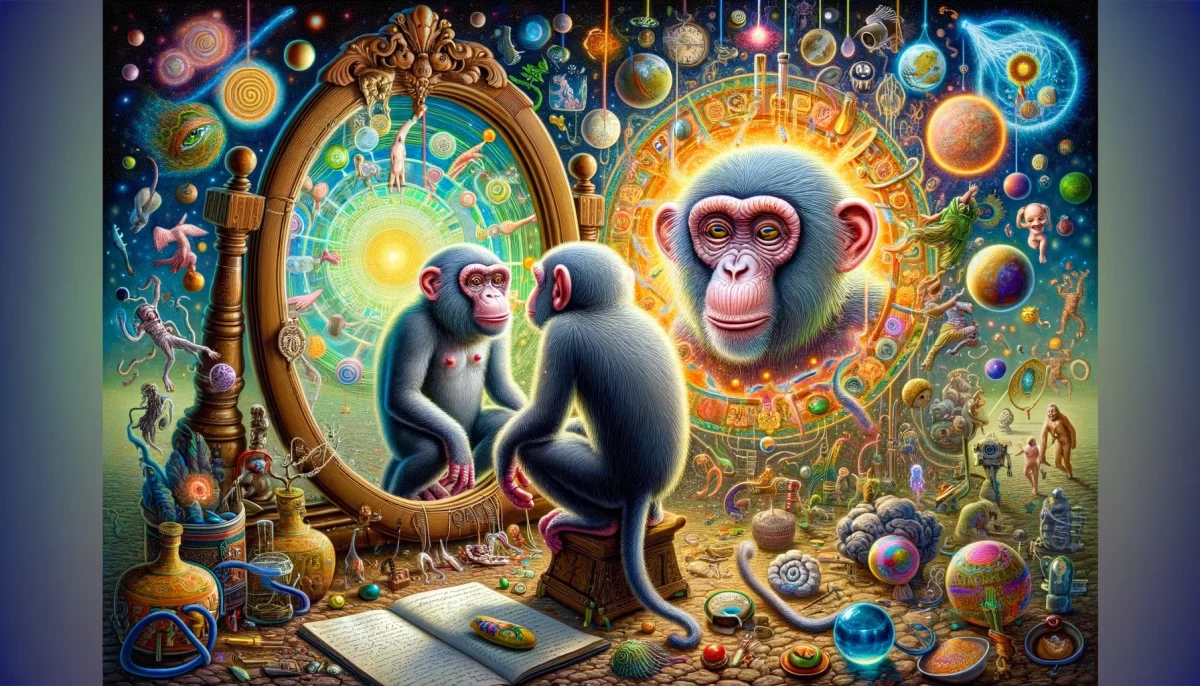
Leave a Reply